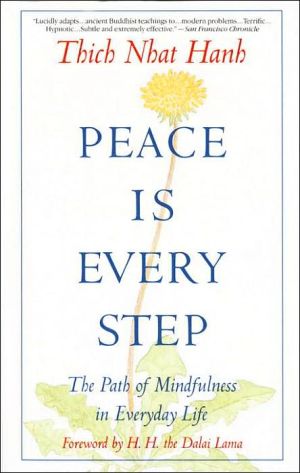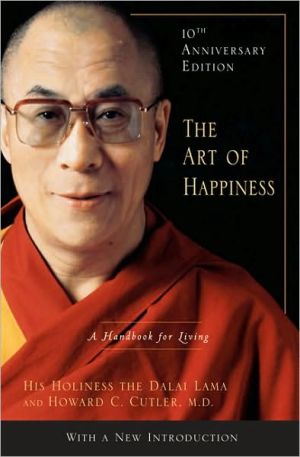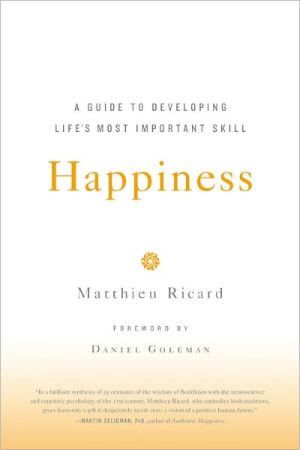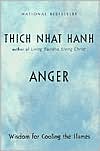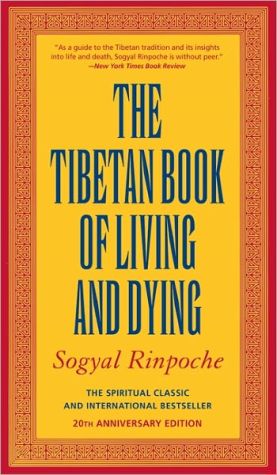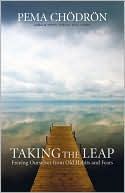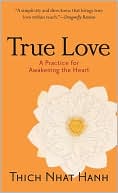When Things Fall Apart: Heart Advice for Difficult Times
The beautiful practicality of her teaching has made Pema Chödrön one of the most beloved of contemporary American spiritual authors among Buddhists and non-Buddhists alike. A collection of talks she gave between 1987 and 1994, the book is a treasury of wisdom for going on living when we are overcome by pain and difficulties. Chödrön discusses:\ • Using painful emotions to cultivate wisdom, compassion, and courage\ • Communicating so as to...
Search in google:
There is a fundamental opportunity for happiness right within our reach, yet we usually miss it—ironically while we are caught up in attempts to escape pain and suffering. Drawn from traditional Buddhist wisdom, Pema Chödrön's radical and compassionate advice for what to do when things fall apart in our lives goes against the grain of our usual habits and expectations. There is only one approach to suffering that is of lasting benefit, Pema teaches, and that approach involves moving toward painful situations with friendliness and curiosity, relaxing into the essential groundlessness of our entire situation. It is there, in the midst of chaos, that we can discover the truth and love that are indestructible. The Shambhala Library is a series of exquisitely designed and produced cloth editions of the world's spiritual and literary classics, both ancient and modern. Perfect for collecting or as gifts, each volume features a sewn binding, decorative endsheets, and a ribbon marker—in a delightful-to-hold 4¼ x 6¾ trim size. Publishers Weekly Pema Chodron, a student of Chogyam Trunpa Rinpoche and Abbot of Gampo Abbey, has written the Tibetan Buddhist equivalent of Harold Kushner's famous book, When Bad Things Happen to Good People. As the author indicates in the postscript to her book: "We live in difficult times. One senses a possibility they may get worse." Consequently, Chodron's book is filled with useful advice about how Buddhism helps readers to cope with the grim realities of modern life, including fear, despair, rage and the feeling that we are not in control of our lives. Through reflections on the central Buddhist teaching of right mindfulness, Chodron orients readers and gives them language with which to shape their thinking about the ordinary and extraordinary traumas of modern life. But most importantly, Chodron demonstrates how effective the Buddhist point of view can be in bringing order into disordered lives. (Sept.) Copyright 2003 Cahners Business Information.
\ From Barnes & NobleTibetan Buddhist Pema Chodron believes that by attending ourselves, we heal ourselves. Her clear call for this root serenity has already won this book over one hundred thousand readers.\ \ \ \ \ Publishers WeeklyPema Chodron, a student of Chogyam Trunpa Rinpoche and Abbot of Gampo Abbey, has written the Tibetan Buddhist equivalent of Harold Kushner's famous book, When Bad Things Happen to Good People. As the author indicates in the postscript to her book: "We live in difficult times. One senses a possibility they may get worse." Consequently, Chodron's book is filled with useful advice about how Buddhism helps readers to cope with the grim realities of modern life, including fear, despair, rage and the feeling that we are not in control of our lives. Through reflections on the central Buddhist teaching of right mindfulness, Chodron orients readers and gives them language with which to shape their thinking about the ordinary and extraordinary traumas of modern life. But most importantly, Chodron demonstrates how effective the Buddhist point of view can be in bringing order into disordered lives. (Sept.) Copyright 2003 Cahners Business Information.\ \ \ Publishers WeeklyPema Chodron, a student of Chogyam Trunpa Rinpoche and Abbot of Gampo Abbey, has written the Tibetan Buddhist equivalent of Harold Kushner's famous book, When Bad Things Happen to Good People. As the author indicates in the postscript to her book: "We live in difficult times. One senses a possibility they may get worse." Consequently, Chodron's book is filled with useful advice about how Buddhism helps readers to cope with the grim realities of modern life, including fear, despair, rage and the feeling that we are not in control of our lives. Through reflections on the central Buddhist teaching of right mindfulness, Chodron orients readers and gives them language with which to shape their thinking about the ordinary and extraordinary traumas of modern life. But, most importantly, Chodron demonstrates how effective the Buddhist point of view can be in bringing order into disordered lives. (Jan.)\ \ \ \ \ Library JournalAn American Buddhist nun and author (Start Where You Are, LJ 6/1/94), Chdrn here passes on the teachings of the Venerable Chogyam Trungpa Rinpoche, advising a loving kindness toward oneself and awakening a compassionate attitude toward our pain and the pain of others. The readings allow us to reconnect with a truth already known or to find a new way of looking at everyday chaos. Throughout, we are shown basic Buddhist beliefs and given instructions in discovering one's true nature through asking questions, facing one's fears, and dealing with the present. The instructions can be taken as meditations, affirmations, or simple reminders of how to transform our minds and actions into nonaggression, which benefits ourselves and society. Popular reading recommended for all libraries; Chodron is donating the proceeds of this book to the Gampo Abbey in Nova Scotia, Canada.-Leo Kritz, West Des Moines P.L., Ia.\ \ \ \ \ Tricycle MagazineThere are few Dharma voices as clear as Pema Chodron's, and few people who know more about things falling apart than mothers.\ \

